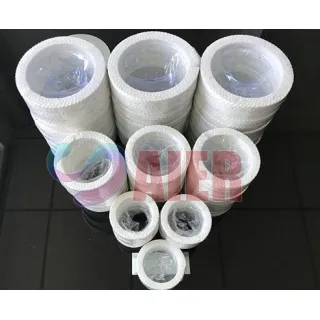Oct . 22, 2024 00:23 Back to list
Durable Impeller Material for High-Performance Slurry Pumps in Challenging Environments
Understanding High-Quality Slurry Pump Impeller Materials
Slurry pumps play a vital role in various industries, including mining, wastewater, and chemical processing, where they transport abrasive and viscous mixtures. A crucial component of these pumps is the impeller, which is responsible for generating the necessary hydraulic energy to move the slurry. The performance, longevity, and efficiency of a slurry pump heavily depend on the quality of the impeller material used. This article delves into the importance of high-quality slurry pump impeller materials, exploring their characteristics and the factors influencing their selection.
Importance of Impeller Material
The impeller is one of the most critical components in a slurry pump because it directly impacts the pump's performance. Since slurry mixtures often contain solid particles that can cause significant wear and tear, the material selected for the impeller must possess high wear resistance and durability. High-quality materials not only enhance the efficiency of the pump but also reduce maintenance costs and downtime associated with replacements and repairs.
Common Materials Used
1. Cast Iron For many standard applications, cast iron is a popular choice due to its good machinability, decent wear resistance, and cost-effectiveness. It can handle a range of slurries effectively, but its performance may degrade in highly abrasive conditions. 2. Alloy Steels Alloy steels, particularly those with high chromium content, are often utilized for their enhanced properties. They provide superior hardness and wear resistance compared to cast iron, making them suitable for more abrasive environments.
3. Rubber Linings In applications where the slurry is particularly abrasive and corrosive, rubber-lined impellers are favored. They provide excellent wear resistance and can absorb shocks, thus extending the life of the impeller. However, they may not be suitable for high-temperature applications.
4. Ceramics For extreme conditions involving very abrasive or corrosive slurries, ceramic materials are sometimes employed. They offer exceptional hardness and resistance to wear but can be more brittle than metals.
5. Stainless Steel In cases where corrosion is a significant concern, stainless steel impellers are used. They provide excellent resistance to corrosion and can be combined with other materials to enhance their performance against abrasives.
high quality slurry pump impeller material

Factors Influencing Material Selection
When selecting the right material for a slurry pump impeller, several critical factors must be taken into consideration
1. Type of Slurry The composition of the slurry—whether it is abrasive, corrosive, viscous, or contains specific chemicals—plays a significant role in material selection.
2. Operating Conditions Factors such as temperature, pressure, and flow rates must be evaluated. Higher temperatures may require materials that retain strength and ductility under heat.
3. Life Expectancy The anticipated lifespan of the impeller in the specific application influences material choice. Higher upfront material costs may be justified by longer life spans and reduced maintenance.
4. Cost-Effectiveness While high-quality materials tend to be more expensive, the overall cost of ownership should also be evaluated, including maintenance and downtime.
5. Environmental Conditions If the slurry pump will be operating in harsh environments, additional considerations such as resistance to chemicals and temperature fluctuations will also impact material choice.
Conclusion
Selecting high-quality slurry pump impeller materials is crucial for ensuring operational efficiency and longevity in challenging applications. With various materials available, it is essential to consider the specific requirements of the application, including the nature of the slurry, operating conditions, and cost-effectiveness. By opting for the right material, industries can minimize downtime, reduce operational costs, and achieve optimal performance from their slurry pumps. As technology advances, further developments in materials science promise to enhance the capabilities of slurry pump impellers, making them even more robust and efficient in the face of demanding conditions.
-
China SP Slurry Pump Supplier – Vertical Sump Pump Rubber Lined Manufacturer & Factory
NewsJul.05,2025
-
High Quality Submersible Slurry Pump with Agitator Manufacturer & Factory Reliable Submersible Pump Solutions
NewsJul.05,2025
-
Cheap Dredge Pump for Sale – China Cheap Submersible Pump for Wastewater Supplier
NewsJul.05,2025
-
Wholesale Casting Dredge Pump Part - High Quality China Manufacturers & Suppliers
NewsJul.04,2025
-
High Quality Slurry Pump Seals Reliable China Suppliers & Manufacturers
NewsJun.24,2025
-
High Quality Portable Submersible Slurry Pump Supplier & Manufacturer from China
NewsJun.10,2025
